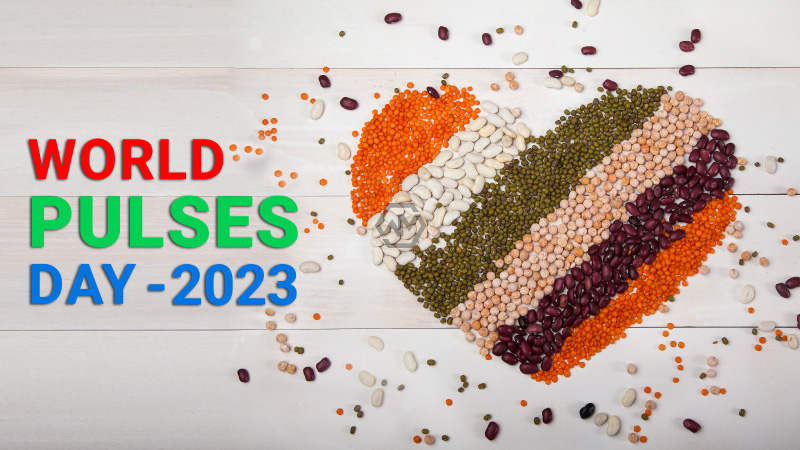World Pulses Day is a worldwide celebration that takes place on February 10th to draw attention to the value of pulses as a staple meal. The purpose of the day is to acknowledge the important part that pulses play in realizing the broad, expansive, and people-centered set of universal and revolutionary goals. to fulfill the objectives of the 2030 Agenda for Sustainable Development, as well.
Pulses are classified as legumes, which are the cultivated edible seeds of leguminous plants. Dried beans, lentils, and peas are the most frequently eaten pulses. Additionally, staple foods and cuisines use pulses from many parts of the world.
Pulses For a Sustainable Future
There are 11 different kinds of pulses recognized by the Food and Agriculture Organization (FAO) of the United Nations, including lentils, dry beans, dry peas, pulses, cowpeas, chickpeas, lupins, pigeon peas, dry broad beans, vetches, and Bambara beans.
On December 20, 2013, the UN General Assembly passed a resolution designating 2016 as the International Year of Pulses. The United Nations’ Food and Agriculture Organization was in charge of the year-end celebration.
By approving the resolution, A/RES/73/251, the General Assembly declared February 10 to be recognized as World Pulses Day in 2019. Its main theme is “Pulses for Sustainable Future”.
- 11 different kinds of pulses recognized by the United Nations FAO.
- The General Assembly declared February 10 to be recognized as World Pulses Day in 2019.
- Its main theme is “Pulses for Sustainable Future”.
- Pulses are low in fat but high in fiber and aid in the fight against obesity.
Pulses are rich in nutrients, and protein sources, decrease cholesterol, and help manage blood sugar since they are low in fat and high in fiber. They aid in the fight against obesity. For the management of non-communicable illnesses like diabetes and heart problems, even health organizations advocate pulses. Pulses have a low glycemic index and a high fiber content.
Pulses help the environment. Pulses’ ability to fix nitrogen helps to increase the soil’s fertility and boost agricultural output.
By reducing reliance on synthetic fertilizers, which are used to artificially add nitrogen to the soil, pulses help to mitigate climate change.
Iron, zinc, folate, and magnesium are just a few of the vitamins and minerals that are abundant in pulses. It is believed that boosting intakes of these nutrients by eating half a cup of beans or peas each day can improve the quality of a diet.
We may draw the conclusion that pulses are an essential component of the diet plan. Pulses are a healthy way to eat in accordance with dietary guidelines and are also linked to a lower risk of developing a number of chronic illnesses.



